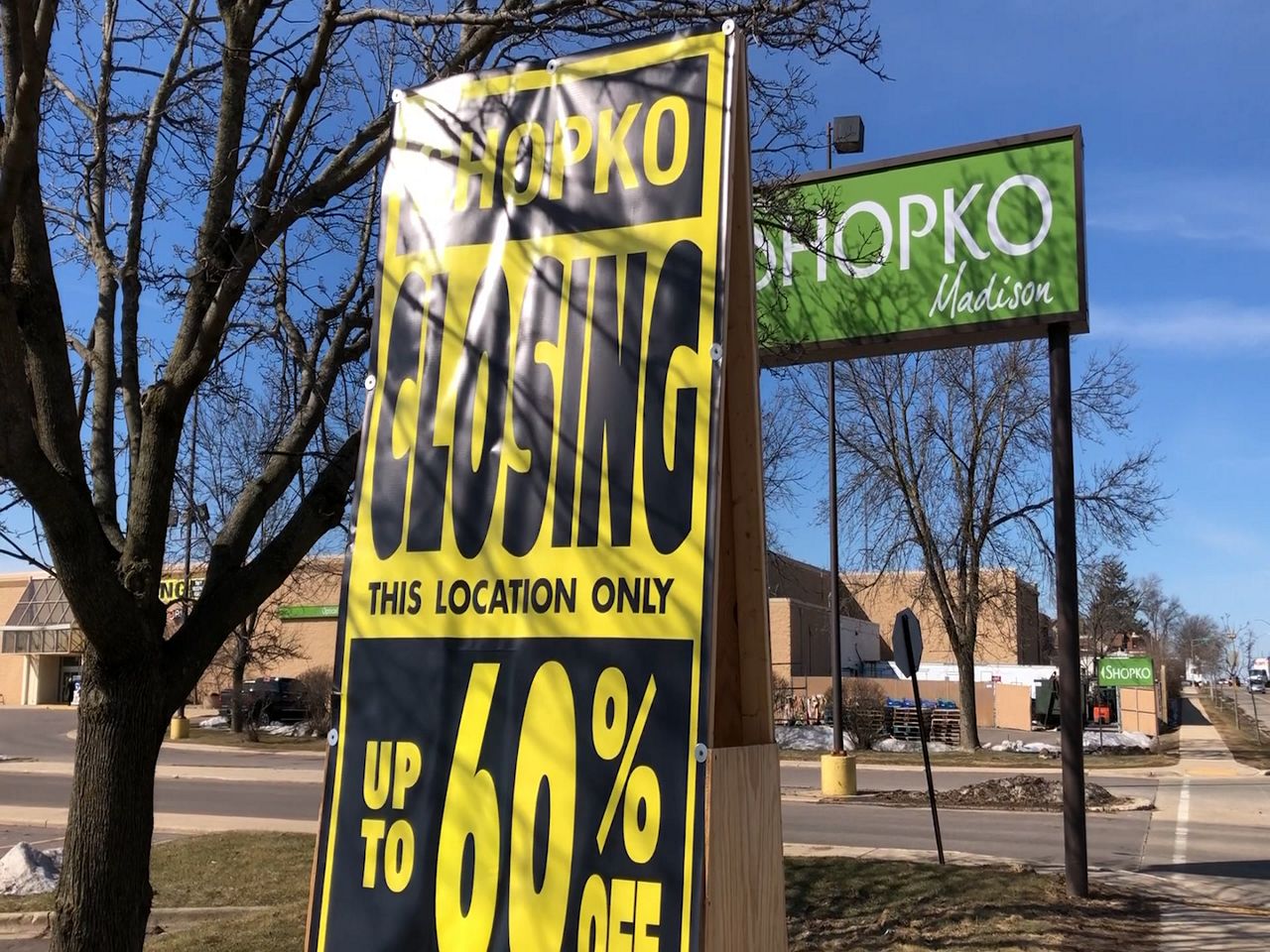MADISON, WI (SPECTRUM NEWS) -- Earlier this week, Wisconsin-based retailer Shopko announced it would be closing all of its remaining 120 stores.
It's a familiar scene all across Wisconsin. In front of Shopko retail stores, you can find signs or banners with the message “store closing” and “new discounts just added.”
“It hurts a little bit more in this instance since they are a Wisconsin-based company,” Madison Mayor Paul Soglin said.
Those aren't the kinds of signs Soglin likes to see, leaving seemingly more questions than answers.
“The critical question is what happens to the land?” Soglin asked rhetorically during a press conference at city hall Tuesday. “What happens to the real estate, and can we take this and turn it into an opportunity?”
Stores on Madison's far east and west sides will soon sit empty, along with one in the neighboring Monona community.
“I'm not terribly excited and I hope our ordinances are in place that they cannot be turned into warehouse type of activities,” Soglin said.
Shopko says the liquidation process could take anywhere between 10 and 12 weeks, meaning the remaining 120 stores will likely be closed by mid-June.
The news doesn't come as a surprise for UW-Madison School of Business Associate Professor Hart Posen.
“They were under-scaled to compete with bigger players in the industry, and they were also, in many respects, in a transition that never really worked out,” Posen said. “Moving from larger stores to smaller stores, and this transition was not enough to save them.”
Posen doesn't put the blame on online retailers. He thinks so-called brick-and-mortar stores can still attract customers if they set themselves apart.
Mayor Soglin hopes that's true since he would still like to see new retailers use those spaces in some way.
“Our planning department, for some time now, has been looking at some of these sites to see how we can actually put in a street grid and do the kind of development that we saw at Sequoia Commons, and some of the other areas in the city where we have a combination of retail on the ground floor and then offices and housing up above,” Soglin said.
Shopko began announcing store closings back in January when the company filed for bankruptcy, citing excessive debt and competitive pressure.



